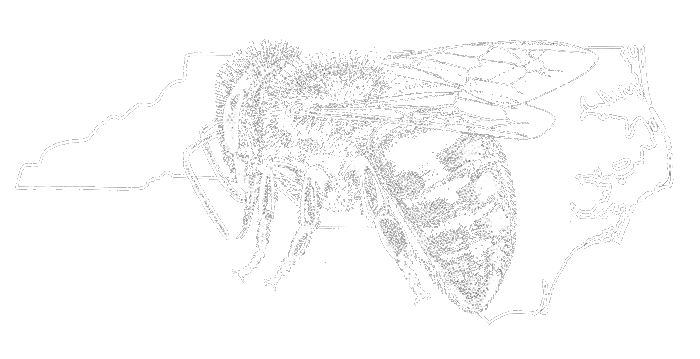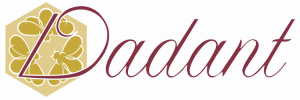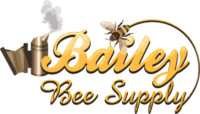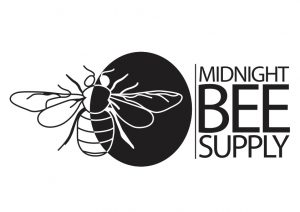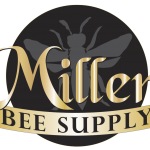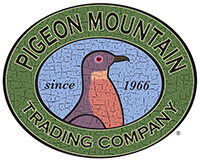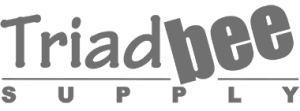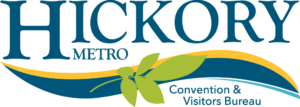 2022 Summer Meeting
2022 Summer Meeting
July 28 – 30, 2022
Hickory Convention Center
1960 13th Ave Dr SE#5186,
Hickory, NC 28602
Consistent with our mission of providing education and support for the beginner as well as the more advanced beekeeper, the conference will provide a variety of keynote, workshop, and apiary presentations. Speakers were chosen to assure that attendees receive a variety of current and useful beekeeping information. Something for everyone is the intent!
Registration
Advance registration is closed. Walk-in registration is available beginning at 10AM Thursday and 8AM Friday and Saturday.
Walk-in Registration Fees:
Current NCSBA Members:
Individual: $70
Family: $105
Non-Members:
Individual: $85
Family: $120*
*Includes NCSBA 2022 annual membership for primary registrant.
Saturday walk-in registration fees are $20 less.
Speakers
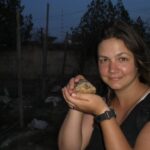 Kaira Wagoner is graduate of Guilford College, earned her masters and doctorate degrees from the University of North Carolina Greensboro (UNCG), served five years as a post-doctoral fellow in the UNCG social insect lab. Dr. Wagoner currently serves as a Research Scientist, splitting her time between UNCG and Optera, a Greensboro-based start-up focused on improving honey bee health that was co-founded by Dr. Wagoner in 2020. Dr. Wagoner’s research focuses on honey bee pests and diseases, particularly as they relate to the immune mechanism hygienic behavior, the ability of adult honey bees to detect and remove unhealthy brood from the hive. Dr. Wagoner is currently using natural honey bee stress signals to develop novel tools to facilitate apiary management and improve selection of disease and pest-resistant honey bees. When not in the lab or apiary, Dr. Wagoner enjoys traveling, playing games, and spending time in the great outdoors with her husband and two nature-loving boys.
Kaira Wagoner is graduate of Guilford College, earned her masters and doctorate degrees from the University of North Carolina Greensboro (UNCG), served five years as a post-doctoral fellow in the UNCG social insect lab. Dr. Wagoner currently serves as a Research Scientist, splitting her time between UNCG and Optera, a Greensboro-based start-up focused on improving honey bee health that was co-founded by Dr. Wagoner in 2020. Dr. Wagoner’s research focuses on honey bee pests and diseases, particularly as they relate to the immune mechanism hygienic behavior, the ability of adult honey bees to detect and remove unhealthy brood from the hive. Dr. Wagoner is currently using natural honey bee stress signals to develop novel tools to facilitate apiary management and improve selection of disease and pest-resistant honey bees. When not in the lab or apiary, Dr. Wagoner enjoys traveling, playing games, and spending time in the great outdoors with her husband and two nature-loving boys.
Talk: “Using the Science of Honey bee Hygiene to Fight Varroa and Improve Colony Health”
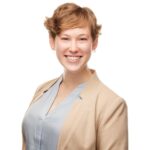 Megan Damico is a 5th-year Ph.D. candidate in Environmental Health Sciences at the University of North Carolina at Greensboro (UNCG) where she studies the effectiveness of available honey bee prebiotics and probiotics. In addition to her Ph.D. research, Megan is working to create better regulatory policy avenues for honey bee microbial therapeutic products as a Policy Entrepreneurship Fellow with the Federation of American Scientists, a non-profit think-tank based in Washington D.C. Megan holds a B.S. in Biomedical Sciences from Grand Valley State University (GVSU) in Allendale, Michigan, where she also began training to become a beekeeper and was the president of the GVSU Beekeeping Club for two years. Outside of her research, Megan volunteers with the North Carolina Audubon Society in leading statewide advocacy efforts and is an avid birder.
Megan Damico is a 5th-year Ph.D. candidate in Environmental Health Sciences at the University of North Carolina at Greensboro (UNCG) where she studies the effectiveness of available honey bee prebiotics and probiotics. In addition to her Ph.D. research, Megan is working to create better regulatory policy avenues for honey bee microbial therapeutic products as a Policy Entrepreneurship Fellow with the Federation of American Scientists, a non-profit think-tank based in Washington D.C. Megan holds a B.S. in Biomedical Sciences from Grand Valley State University (GVSU) in Allendale, Michigan, where she also began training to become a beekeeper and was the president of the GVSU Beekeeping Club for two years. Outside of her research, Megan volunteers with the North Carolina Audubon Society in leading statewide advocacy efforts and is an avid birder.
Talk: “The wild west of honey bee microbial therapeutic products”
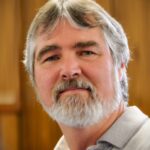 Bob Binnie, along with his wife Suzette, owns and operates Blue Ridge Honey Co. in Lakemont, Georgia and operates approximately 2000 colonies of bees along with a sizable honey packing operation. Bob began his commercial beekeeping career in Oregon in 1981 and because of migratory beekeeping practices has had bees in nine states. Voted 2003 Beekeeper of The Year in Georgia, Bob has also been president of several beekeeping associations including the Georgia Beekeepers Association, the Northeast Georgia Mountain Beekeepers Association, and the Macon County Beekeepers in western North Carolina.
Bob Binnie, along with his wife Suzette, owns and operates Blue Ridge Honey Co. in Lakemont, Georgia and operates approximately 2000 colonies of bees along with a sizable honey packing operation. Bob began his commercial beekeeping career in Oregon in 1981 and because of migratory beekeeping practices has had bees in nine states. Voted 2003 Beekeeper of The Year in Georgia, Bob has also been president of several beekeeping associations including the Georgia Beekeepers Association, the Northeast Georgia Mountain Beekeepers Association, and the Macon County Beekeepers in western North Carolina.
Talks: “Producing Queen Cells with Queen-rite Colonies” and “The Chemistry and Mechanics Behind Feeding Bees”
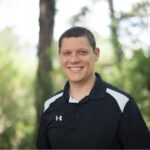 Cameron Jack grew up in a small rural farm town called Logandale, NV, just outside of the lights and glitter of Las Vegas. His Grandpa was a high school principal but supplemented his income through beekeeping, managing about 150 hives for honey production and pollination. Cameron grew up around honey bees and beekeeping, often helping his grandfather with hive inspections and honey extraction. He obtained his B.S. degree in biology from Southern Utah University in 2012 and completed his Master’s degree at Oregon State University under the mentorship of Dr. Ramesh Sagili in 2015. There he conducted research on the honey bee gut pathogen Nosema ceranae. He then traveled across the country to pursue a Ph.D. at the University of Florida under the mentorship of Dr. Jamie Ellis where he began investigating methods to control the devastating pest Varroa destructor.
Cameron Jack grew up in a small rural farm town called Logandale, NV, just outside of the lights and glitter of Las Vegas. His Grandpa was a high school principal but supplemented his income through beekeeping, managing about 150 hives for honey production and pollination. Cameron grew up around honey bees and beekeeping, often helping his grandfather with hive inspections and honey extraction. He obtained his B.S. degree in biology from Southern Utah University in 2012 and completed his Master’s degree at Oregon State University under the mentorship of Dr. Ramesh Sagili in 2015. There he conducted research on the honey bee gut pathogen Nosema ceranae. He then traveled across the country to pursue a Ph.D. at the University of Florida under the mentorship of Dr. Jamie Ellis where he began investigating methods to control the devastating pest Varroa destructor.
In 2018, Cameron was hired on as a teaching faculty at the University of Florida’s Entomology and Nematology Department. In the past three years, he has been obsessed with creating a premier educational program that prepares students for the many challenges associated with beekeeping and to train those interested in entering the beekeeping workforce. Cameron currently teaches 10 honey bee-related courses and has created an online Beekeeping Certificate Program at both the undergraduate and graduate level at UF. In 2021, he transitioned into an Assistant Professor position where he continues to teach and conduct research focused on honey bee toxicology.
Most recently his projects have involved studying the efficacies of different chemical treatments to Varroa in field trials. Notably, his work on oxalic acid vaporization has been of interest to beekeepers around the world. He is also involved in a large-scale collaborative project screening a wide variety of untested chemicals for their toxicity towards Varroa and their effect on honey bees. As often as possible, Cameron tries to support undergraduate and graduate students with their research questions and helps them conduct meaningful studies that contribute to the overall scientific body of knowledge.
Talks: “The in’s and out’s of using oxalic acid as a Varroa control” and “The seasonal efficacy of common Varroa treatments”
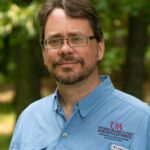 Jon Zawislak is an Assistant Professor of Apiculture and Urban Entomology for the University of Arkansas System Division of Agriculture. He has worked and played with honey bees since 1998, and is equally at home in the apiary, the laboratory or the classroom. Each year he teaches workshops and classes for new and experienced beekeepers throughout Arkansas and beyond. He emphasizes understanding the biology and behavior of honey bees and related pests as key to keeping bees healthy, and minimizing the use of pesticides in the hives. He also spreads the word about the importance of pollinators to the non-beekeeping public. Jon has a background in botany and entomology, and is an EAS certified Master Beekeeper. He and his family operate Walnut Valley Honey Company in Little Rock, Arkansas, producing good products from the hive, and supplying pollinators for area community gardens.
Jon Zawislak is an Assistant Professor of Apiculture and Urban Entomology for the University of Arkansas System Division of Agriculture. He has worked and played with honey bees since 1998, and is equally at home in the apiary, the laboratory or the classroom. Each year he teaches workshops and classes for new and experienced beekeepers throughout Arkansas and beyond. He emphasizes understanding the biology and behavior of honey bees and related pests as key to keeping bees healthy, and minimizing the use of pesticides in the hives. He also spreads the word about the importance of pollinators to the non-beekeeping public. Jon has a background in botany and entomology, and is an EAS certified Master Beekeeper. He and his family operate Walnut Valley Honey Company in Little Rock, Arkansas, producing good products from the hive, and supplying pollinators for area community gardens.
Talks: “Common Scents: Honey Bee Pheromones”
Honey bees communicate in complex and effective ways. Learn how and why chemical pheromones are ideal for honey bees to spread important news.
“Mysteries and Management of Laying Workers”
Sometimes worker bees try to put on the crown and be treated like royalty. How and why do they do it? And what can beekeepers do to stop them?
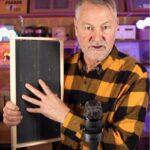 David began beekeeping in 1994 after hiving a swarm from a fallen tree. After moving those hives from Ohio to Illinois, the hives were lost due to mites, and the yard had to be started all over again. In the beginning the Burns family just sold honey, but as time went on and the yard became bigger, the Burns family began building their own hives and selling them to other beekeepers. Knowing that the success of beekeepers was all dependent upon education, David began blogging and uploading videos to YouTube. His YouTube channel now has over 85,000 subscribers. In order to make sure beekeepers had the best and latest of scientific information on bees and beekeeping, David took several years to become a Certified Master Beekeeper through the Eastern Apicultural Society (2010). David teaches beekeeping workshops all year at their Training Center in Fairmount, IL. He also has a mentorship program known as Beeteam6, talks throughout the country at beekeeping association meetings, and heard frequently on radio shows and podcasts. He is also a competitive sportsman and competes throughout the US.
David began beekeeping in 1994 after hiving a swarm from a fallen tree. After moving those hives from Ohio to Illinois, the hives were lost due to mites, and the yard had to be started all over again. In the beginning the Burns family just sold honey, but as time went on and the yard became bigger, the Burns family began building their own hives and selling them to other beekeepers. Knowing that the success of beekeepers was all dependent upon education, David began blogging and uploading videos to YouTube. His YouTube channel now has over 85,000 subscribers. In order to make sure beekeepers had the best and latest of scientific information on bees and beekeeping, David took several years to become a Certified Master Beekeeper through the Eastern Apicultural Society (2010). David teaches beekeeping workshops all year at their Training Center in Fairmount, IL. He also has a mentorship program known as Beeteam6, talks throughout the country at beekeeping association meetings, and heard frequently on radio shows and podcasts. He is also a competitive sportsman and competes throughout the US.
Talks: “Feeding Throughout The Seasons” and “Overwintering Colonies”
Schedule
Schedule available for download here
Highlights to note are:
- Master Beekeeper Program testing for all levels Saturday morning. You must be registered for the conference to attend.
- Honey Show for judging honey, wax products, photos etc. is planned. See contest rules and regulations on the website.
- Honey tasting is always popular, and we are working to have a tasting contest.
- An Awards Dinner is for Friday evening. This event is contingent on interest.
- A live apiary will be located on site to allow our NC Inspectors to do typical demonstrations and inspections,
- Other inspector activity will be their regional reports and Q&A from the main stage.
- The annual association membership business meeting with officer elections. Especially important.
- Influenced by survey comments, an effort to incorporate more regional presenters into the educational portion of the conference should be noticeable.
Concessions
The concession stand at the convention center will be open 8:30 am – 2:00 pm Thursday though Saturday. The menu includes hot dogs, hamburgers, BBQ sandwiches, chicken salad croissants, as well as chips and other snacks. Sodas, tea, coffee, and bottled water will be available for purchase also.
Hotel/Lodging
A list of local hotels and rates is available here
